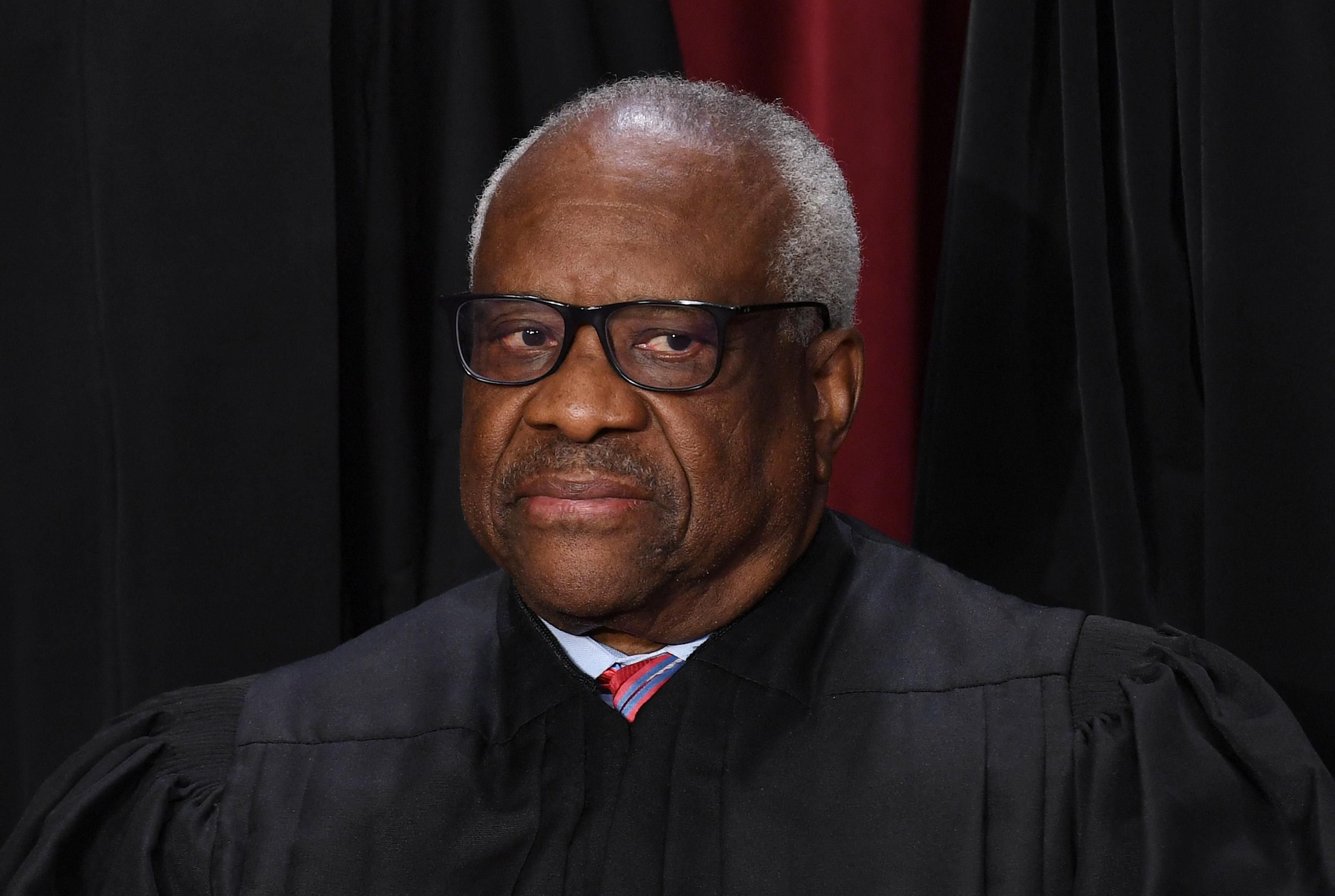
Email conversations published Wednesday by Politico reveal that former President Donald Trump's legal team saw U.S. Supreme Court Justice Clarence Thomas as their most promising chance to prevent congressional certification of President Joe Biden's 2020 victory.
A federal judge recently ordered former Trump lawyer John Eastman, the architect of the plot to overturn the election, to share emails with the House select committee investigating the January 6, 2021 attack on the U.S. Capitol, which briefly delayed the certification process.
Thomas—who has faced calls to leave the court or at least recuse himself from 2020 election-related cases due to efforts by his wife Ginni Thomas, a right-wing activist, to help keep Trump in power—handles emergency appeals out of the 11th Circuit, which includes Georgia.
"The point is to have the court say that probably the election was void, which ought to be enough to prevent the Senate from counting the Biden electoral votes from Georgia, right?" Trump lawyer Kenneth Chesebro wrote to various people including Eastman on December 31, 2020. "Merely having this case pending in the Supreme Court, not ruled on, might be enough to delay consideration of Georgia, particularly if [then-Vice President Mike] Pence has the legal ability and will to insert himself at least enough to win delay."
"Possibly Thomas would end up being key here—circuit justice, right?" Chesebro continued. "We want to frame things so that Thomas could be the one to issue some sort of stay or other circuit justice opinion saying Georgia is in legitimate doubt. Realistically, our only chance to get a favorable judicial opinion by [January] 6, which might hold up the Georgia count in Congress, is from Thomas—do you agree, Prof. Eastman?"
A couple of hours later, Eastman replied: "I think I agree with this. If the court were to give us a 'likely,' that may be enough to kick the Georgia Legislature into gear, because I've been getting a lot of calls from them indicating to me they're leaning that way."
Not long after that, Chesebro wrote that while pending election-related legislation was at the district court level, "if we can just get this case pending before the Supreme Court" by January 5, "ideally with something positive written by a judge or justice, hopefully Thomas, I think it's our best shot at holding up the count of a state in Congress."
While the new reporting provoked fresh criticism of Thomas, Politico noted that team Trump's legal strategy "found virtually no traction at the high court. The only outward signs of dissension among the justices were mild, like a December 11 order where the court rejected a bid by Texas to challenge the vote counts in four other states. Thomas and Justice Samuel Alito issued a brief statement saying they'd have accepted jurisdiction over the case, but joined the other justices in denying Texas any relief."
The kind of decision that Trump's lawyers sought from Thomas often precedes the full court weighing in—as was illustrated over the past week with a pair of orders related to a subpoena for U.S. Sen. Lindsey Graham (R-S.C.) to testify before a special purpose grand jury in Fulton County, Georgia that is probing efforts to subvert the 2020 election in the state.
Thomas last week temporarily blocked the subpoena for Graham to testify about calls he made to Georgia election officials shortly after Trump lost in 2020, but the full court on Tuesday reversed course—with no dissent or recusals—leaving the Trump ally set to appear before jurors later this month.
Publication of the Eastman emails—which also indicate Trump signed a legal document containing voter fraud claims he knew were false, as a federal judge's ruling revealed last month—comes less than a week before the midterm elections, which will determine control of Congress for the next two years as well as who holds state positions that could impact 2024 races, including the presidential contest.
Republican candidates who support Trump's "Big Lie" that he won in 2020 have continued to sow doubt about the integrity of U.S. elections on the campaign trail and wage legal battles intended to limit the power of voters, particularly in key swing states like Pennsylvania.
This content originally appeared on Common Dreams - Breaking News & Views for the Progressive Community and was authored by Jessica Corbett.